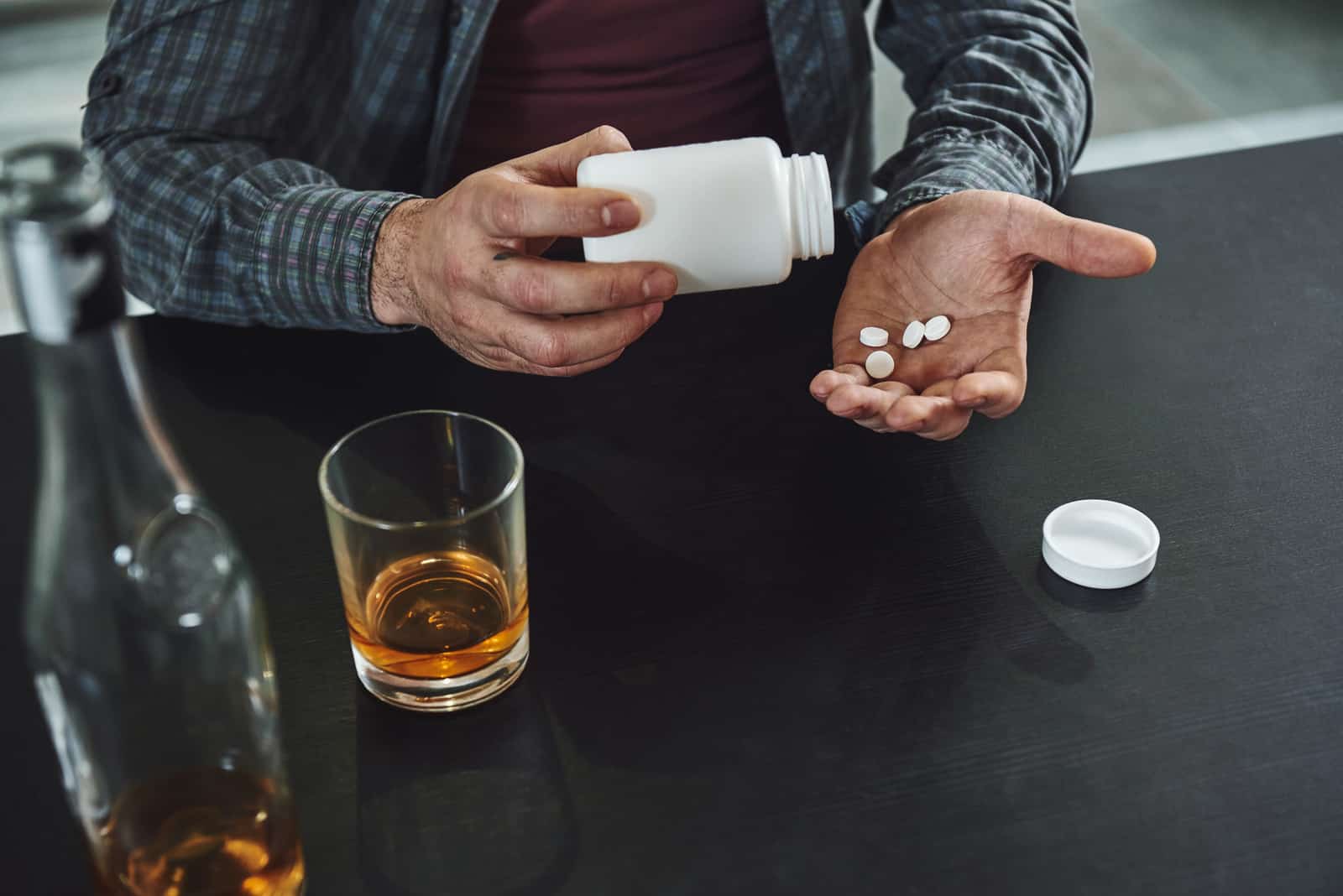
Can You Overdose On Gabapentin?
Written By
GET IN TOUCH WITH US
Follow Us On Social Media
Receive A Call
Can You Overdose On Gabapentin?
A very important question being asked, especially with a drug as new as Gabapentin, is “Can you overdose on Gabapentin?”
There are a lot of drugs out there that are both prescription medications that can be incredibly important for the patients who need them, and also potential drugs of abuse that need to be monitored for their potential to cause addiction or to be used improperly and potentially dangerously.
Understanding these medications and drugs is one of the best tools we have to fight addiction and misuse of the drugs.
So, what is gabapentin, what is it used for and why is this drug often prescribed off-label, and why do some people wind up developing gabapentin addictions.
This guide is designed for both people dealing with gabapentin addictions, and people who have been prescribed the drug and want to know more about it, as well as their loved ones and anyone interested in this drug and recognizing the signs of misuse.
Gabapentin is a relatively common drug, but not a terribly well-known drug, so this is information that’s important for a wide range of people. Here’s what you need to know.
What Is Gabapentin?
Gabapentin is an anticonvulsant medication, which means that it helps treat seizures and seizure disorders. It can work for a range of seizure disorders and is available in a wide range of doses and preparations to make it more effective for different populations.
Gabapentin has also been found to be an effective treatment for shingles pain, as well as reducing the overall symptoms of restless leg syndrome.
It’s thought that all of the different functions of gabapentin are related to reducing abnormal excitement in the brain and reducing nerve signals so that extra signals and unnecessary signals aren’t being sent.
However, gabapentin is one of the prescription drugs that is used even though we don’t fully understand how it works or why it works for some of the things that it’s being used for.
There are a lot of medications that are like that, where we understand that the medication is effective for specific situations, but don’t know the whys or how’s of how those medications work.
That’s important to understand because while gabapentin is a common medication, it’s important for people who use the drug to understand that even their prescribing doctor may not understand all of how this medication is working.

How Is Gabapentin Used?
Gabapentin can be used to control and help to treat a wide range of disorders and symptoms, but it’s mostly approved for use with seizure disorders, restless leg syndrome, and shingles pain.
However, gabapentin is also used for a wide range of other situations and concerns in what’s called off-label use. Off-label use happens when doctors know that a drug is good for a range of situations that aren’t included in its current use approval, but the drug hasn’t gone through approval for those conditions.
There are a wide range of reasons that a drug might be used off-label. For instance, prescribing a different dose of a medication for an approved use is still considered an off-label use, but your doctor may tailor your dose to more accurately meet your needs.
Another reason a drug might be used off-label is when it’s found to have another effective use, but the manufacturer either hasn’t yet finished getting the drug approved for that use or because they don’t want the added cost of getting official drug approval.
Unfortunately, that can mean that there is a little more risk involved when you’re taking the drug that way, but doctors wouldn’t prescribe drugs this way if they weren’t confident in the use.
That said, it’s important to understand that off-label use can sometimes contribute to problems of addiction, especially with drugs that are a target for abuse like gabapentin.
Can You Overdose On Gabapentin?
One of the most critical questions for any medication is whether you can overdose on the medication, and if so, how easily can you overdose.
The truth is that you can overdose on almost any medication, too much of anything in your system, including water, can be deadly in the right circumstances.
But, when it comes to concentrated chemicals like most medications, the margin for error is a lot slimmer.
So, can you overdose on gabapentin? Yes.
In fact, unfortunately, gabapentin can cause an overdose, and can also cause an overdose with other drugs. Like many medications, combined with the wrong medications or drugs, overdose on gabapentin or the other drugs involved might get easier and more likely.
Risks Of Taking Gabapentin
There are a few side effects and risks of gabapentin that you should know about, especially if you’re debating taking the risk of using gabapentin without a prescription.
The biggest and most common risk of gabapentin use is that it can increase feelings of depression or suicidal ideation while taking the medication. Sometimes stopping the medication can reverse these feelings, while other people may need more long-term treatment, or it may take longer for the drug to leave your system.
Because of that risk, it’s important for people who have a history of depression or suicidal ideation to pay attention to their moods while on the drug since they may be at increased risk of having negative mood effects.
Here are some of the other side effects and risks you should be aware of:
-
- Feeling tired or sleepy
-
- Feeling sick
-
- Vomiting
-
- Nausea
-
- Diarrhea
-
- Mood changes
-
- Swelling in your extremities
-
- Blurry vision
-
- Dry mouth
-
- Trouble getting or maintaining an erection
-
- Headaches
-
- Memory problems
-
- Weight gain
-
- Increased vulnerability to infections
If you get these side effects, especially if the side effects impact your quality of life or seem to be getting more severe over time, it’s important to talk with your doctor and see if they can be addressed or if there might be other medication options that could work better for you.
Why Do Doctors Sometimes Prescribe Gabapentin Off-Label?
Off-label use of drugs is a relatively common practice, especially when there are significant trends pointing to a drug being a good potential treatment for other uses.
Sometimes off-label use can also be used to help with diagnosing the source of problems, or in finding creative solutions to treatment-resistant symptoms.
Gabapentin also happens to have a lot of treatment potential for a wide range of disorders, types of nerve pain, and other common problems that can be difficult to treat and manage long-term, which makes it a promising candidate for those uses.
Unfortunately, because the relaxed somewhat happy feeling brought on by the drug has more recently made gabapentin a target for misuse, off-label use may put patients at greater risk of addiction. Doctors may also be less likely to continue using gabapentin for off-label treatments if the problem of addiction and misuse continues to be a significant one.
Is Gabapentin Addictive?
Gabapentin was known to cause a physical dependence in users but wasn’t really considered an addiction risk until very recently. Unfortunately, the kinds of drugs people are using, and misusing is getting much more varied and widespread, both as users experiment and as sellers and cartels experiment with different drug possibilities.
Today, gabapentin is known to be addictive, but the mechanisms of addiction and the reason those who use the substance are interested in misusing gabapentin aren’t very well understood. There isn’t a lot of knowledge out there for how to prevent gabapentin use or addiction, though addiction treatments designed for other kinds of substance use disorder do seem effective for people dealing with gabapentin addiction.

Signs Of Gabapentin Addiction
Signs of addiction are usually shared across different kinds of addiction, and since gabapentin addiction is still being studied for better understanding, we’re going to treat it mostly like other kinds of addiction. That means that the feelings and symptoms associated with addiction are likely to be shared.
Here are some of the common signs of addiction:
-
- Wanting to take more gabapentin than you’re prescribed
-
- Wanting to take gabapentin without a prescription
-
- Craving the drug between doses
-
- Craving the drug without being in pain, or without symptoms of other conditions gabapentin can treat
-
- Feeling like you aren’t yourself without taking gabapentin
-
- Wanting to take gabapentin specifically to relax
-
- Feeling like you need gabapentin in inappropriate situations, like stressful presentations at work or school.
-
- Considering going to more than one doctor to get duplicate prescriptions
-
- Considering ordering gabapentin online, with or without a prescription
-
- Considering lying to your doctor to increase your prescription dose or the frequency you take the drug
You don’t need to have all of these signs and symptoms to be dealing with an addiction. If even a few of these signs and symptoms sound familiar you might be dealing with an addiction.
How To Get Help For Gabapentin Addiction
Getting help for gabapentin addiction can feel like an uphill battle, but there are options available to you. At Psyclarity Health we know that addiction can be complicated, but we don’t think addiction recovery has to be difficult. With customized treatments and a lot of treatment options, we’re ready to handle whatever your addiction has to throw at us.
If you’re ready to leave addiction in the past, contact us. We’re ready and willing to help.
Sources:
1. NHS choices. Accessed January 2, 2023. https://www.nhs.uk/medicines/gabapentin/side-effects-of-gabapentin/.
2. Commissioner Oof the. Understanding unapproved use of approved drugs “Off label”. U.S. Food and Drug Administration. Accessed January 2, 2023. https://www.fda.gov/patients/learn-about-expanded-access-and-other-treatment-options/understanding-unapproved-use-approved-drugs-label#:~:text=Unapproved%20use%20of%20an%20approved,a%20different%20type%20of%20cancer.
3. Gabapentin: Medlineplus drug information. MedlinePlus. Accessed January 2, 2023. https://medlineplus.gov/druginfo/meds/a694007.html.









